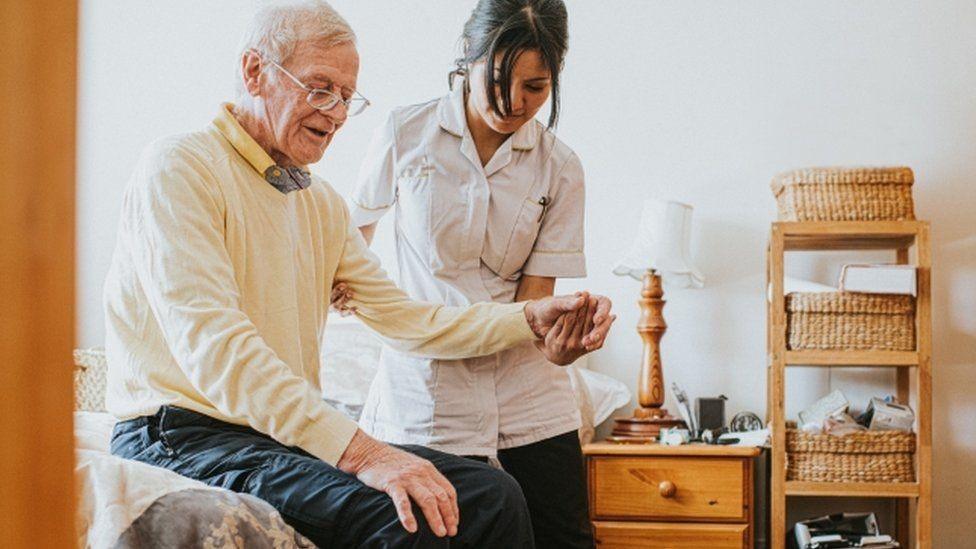NHS: Up to 15% of hospital beds used by people waiting for care
- Published
- comments
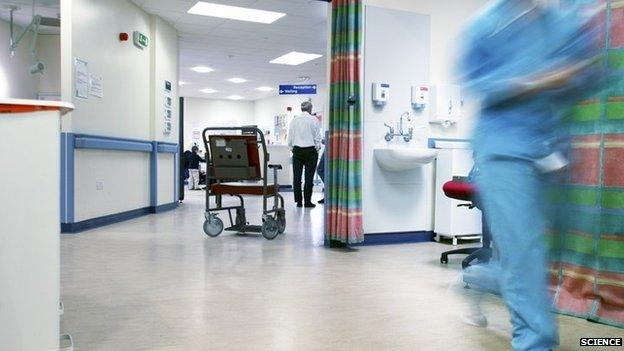
The Welsh NHS Confederation urged the Welsh government to improve care workers' pay and conditions
Up to 15% of hospital beds are occupied by people unable to leave because they are awaiting care, the Welsh NHS Confederation has said.
It dubbed the problem a "massive challenge" and urged the Welsh government to improve care workers' pay and conditions.
It said up to 1,400 patients had recently been in this situation.
The Welsh government said there were many reasons a patient might not be discharged.
With waiting times already at record levels, delays in discharging patients can cause pressure and build up in areas such as A&E.
The Welsh NHS Confederation said that, in recent weeks, between 1,000 and 1,400 people were stuck in hospital waiting for a care home space, care at home or medical treatment at home.
Available bed numbers change daily but there have been about 9,400 a day over the past month.
Welsh NHS Confederation director, Darren Hughes, said just over 90% of those were occupied lately.
"That number is the highest level since Covid began so pressures are enormous," he said.
"Staff have been working incredibly hard for 20 months plus now, and I don't know how much more we can ask them to do."
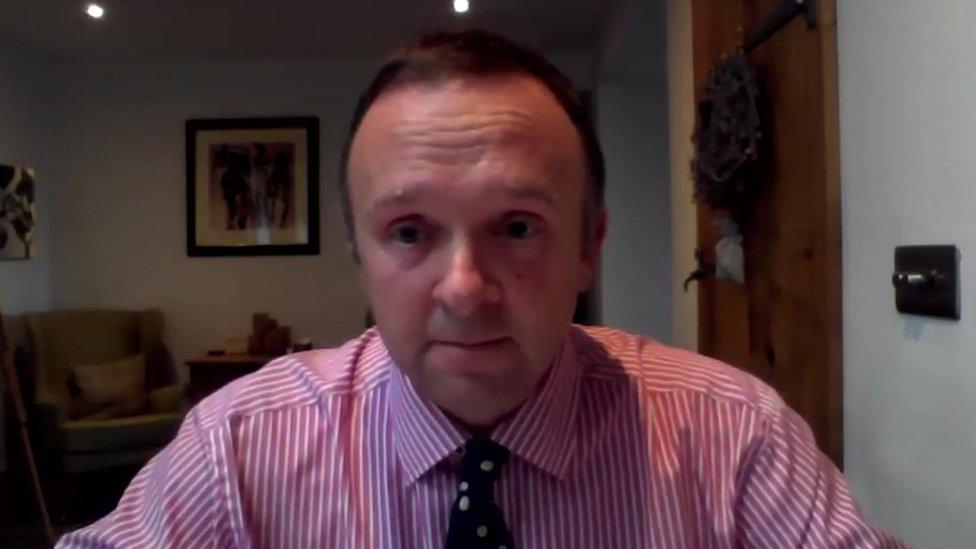
Darren Hughes said between 1,000 and 1,400 people had recently been stuck in hospital waiting to leave
He said winter was going to be "incredibly tough", adding: "The number one issue facing health and social care is a lack of staff.
"We need to recognise the hard work they do, pay them fairly and ensure we retain and train them for the future.
"If the social care sector isn't functioning properly and providing the care people need, then the NHS will really struggle to function."
Wendy Harvey, a care manager for All Care, in Barry, Vale of Glamorgan, said recruitment was at an all-time low.
"We've had maybe two new people in the last couple of months and that's not normal," she said.
Ms Harvey and colleague Jane Davies have both been performing care roles on top their managerial work because demand is so high.
They said they were "constantly" asked to take on more patients, but did not have the capacity.
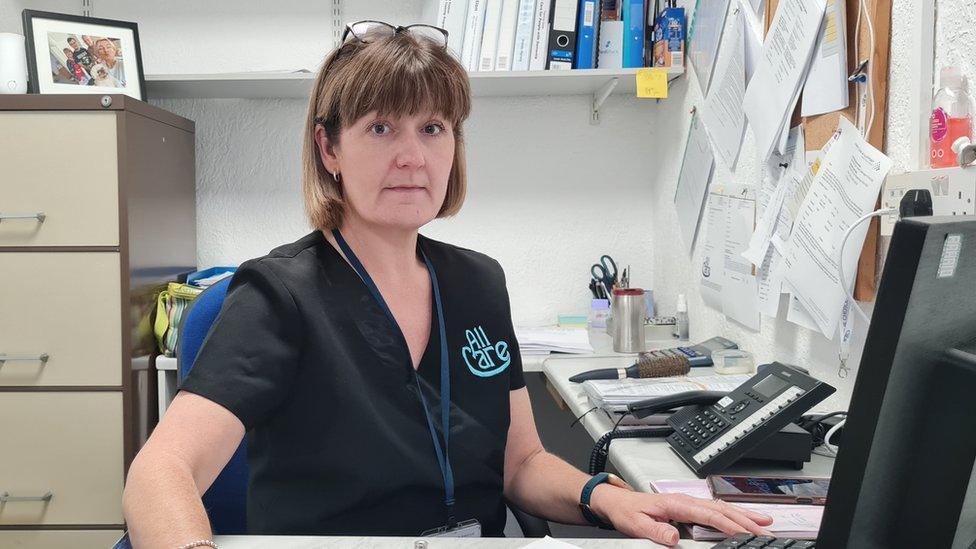
Care manager Wendy Harvey said she was exhausted
Ms Harvey said continually saying no was heartbreaking and she did not know how much longer they could carry on.
"We're all exhausted, we're tired and we're working our weekends off and evenings.
"I do get upset. I do find it hard some days, but when you go home and you know you've made a difference to someone's life, that's what makes you carry on."
All Care employs 84 staff and Ms Davies said if they could recruit more people they would be able to offer more care packages for those in need.
"It's very frustrating to have to say no," she said.
"It's almost soul destroying because you want to help."
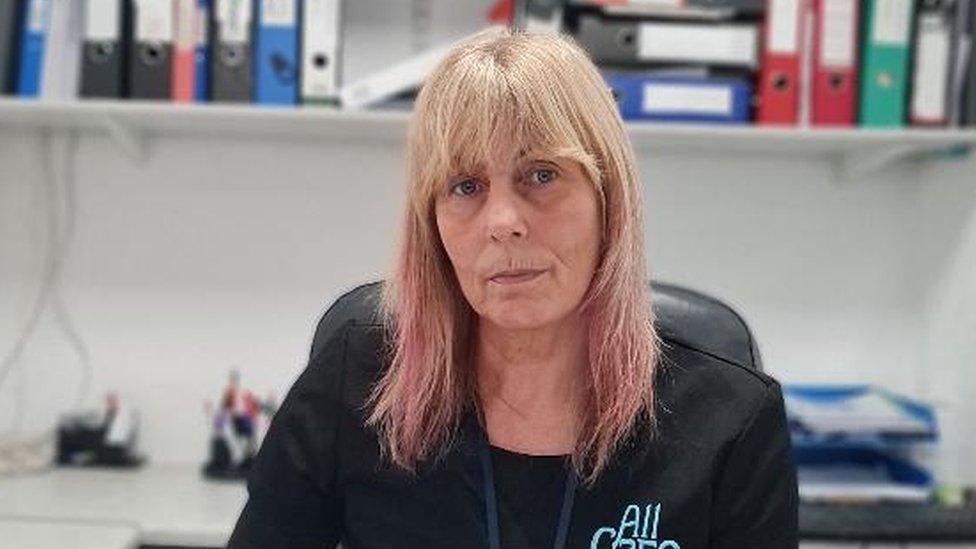
Jane Davies said if they could recruit more people they would be able to offer more care packages
The Welsh government said publication of the numbers of people waiting for care so they could leave hospital was suspended at the start of the pandemic.
It said weekly data collected for health boards should not be relied on.
"There are many reasons why a patient may not be discharged to the next stage of their ongoing care," a spokesman said.
"This could include waiting for an appropriate nursing or residential home, an interim care bed, a specialist facility, or to their own home with a package of care and support.
"Capacity for these facilities is not always available and can lead to a delay in discharge to them, which is why we have recently invested an additional £42m in social care, some of which will ease pressure on hospital beds."

MONUMENTAL MRS CAMPBELL: Wales' first black head teacher celebrated with iconic statue
MOTHERS, MISSILES AND THE AMERICAN PRESIDENT: The story of Greenham told like never before

- Published4 November 2021
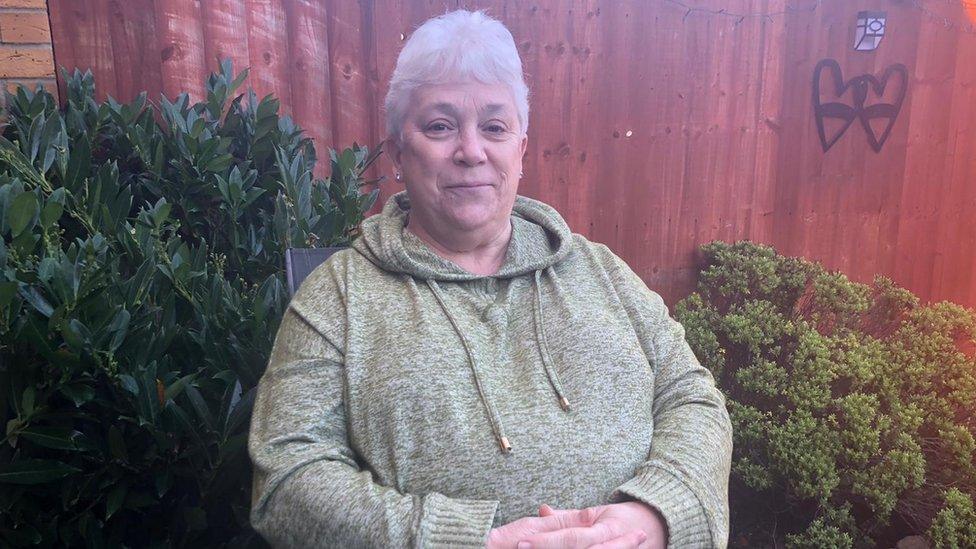
- Published11 November 2021

- Published21 October 2021
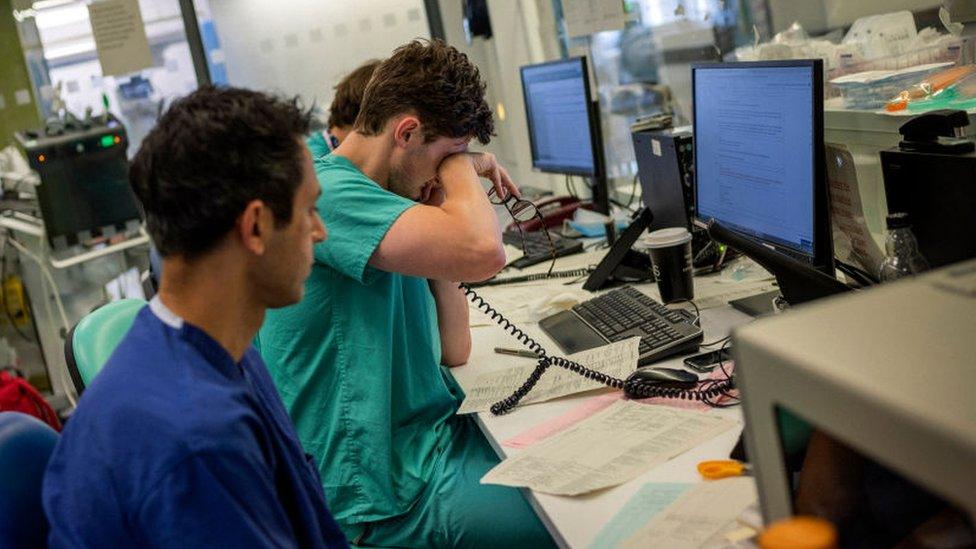
- Published7 September 2021
